Doctor Shares 3 Easy Ways to Stop Peeing So Much at Night
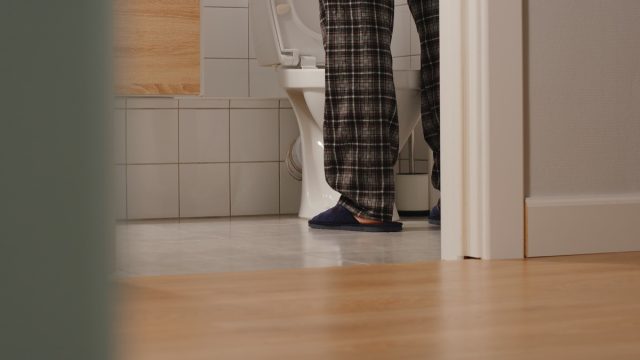
Short of a nightmare or an errant car alarm, it’s just about the worst way to get startled awake. You roll out of bed, fumbling in the dark for a light switch, ambling down the hallway to the bathroom. Yes, you have to pee in the middle of the night. Again.
The official name for the condition we call “peeing in the middle of the night” is nocturia. As one urologist noted in a 2019 Washington Post column, nocturia is startlingly common. One in three people experience it throughout their lifetime. And while women tend to start experiencing it after 30, people regardless of gender are equally susceptible after the age of 50.
Of course, as far as medical conditions go, nocturia isn’t exactly the most debilitating thing on the planet—but it nevertheless remains maddeningly inconvenient. The good news, though, is that there are some tricks to sleep soundly. Here, a doctor shares three easy ways to stop peeing so much at night.
RELATED: 7 Reasons You Feel Like You Have to Pee All the Time, According to Urologists.
Why you pee at night
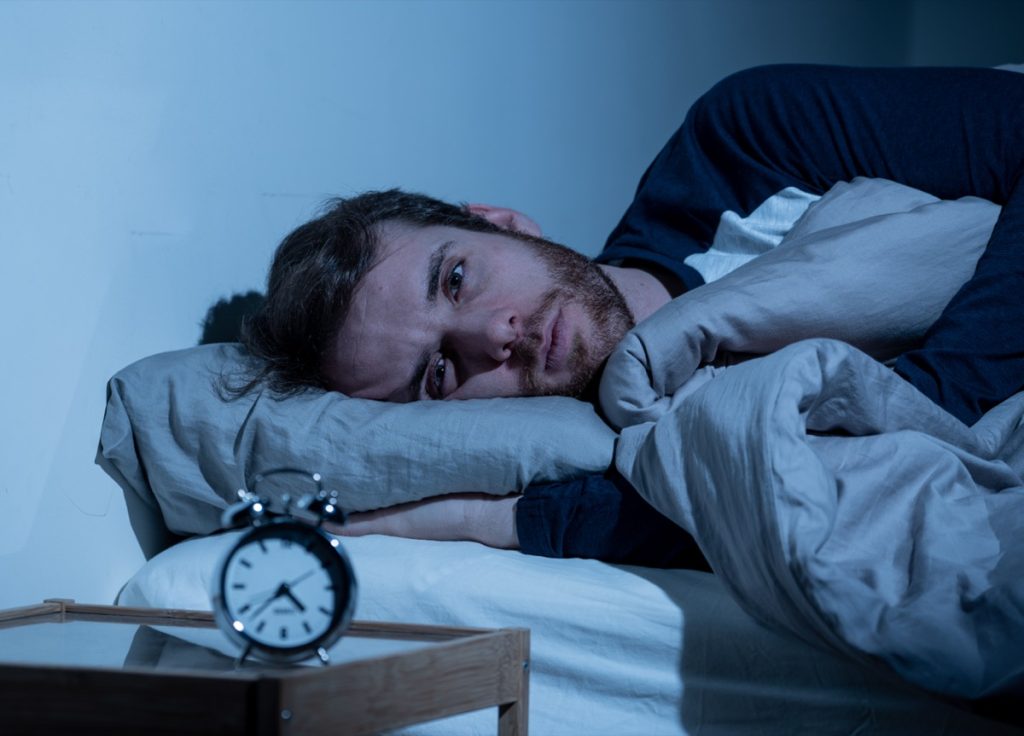
According to the Mayo Clinic, nocturia can be associated with several conditions of varying gravity. In some cases, frequent nighttime urination could be a sign of a urinary tract infection, a urethral stricture, prostatitis, or a kidney infection. On the more serious end, nocturia is associated with bladder cancer. Some of the other causes, however, are more benign: You regularly drink alcohol and caffeine (and tend to do so close to bedtime) or you’re pregnant.
The only way to be sure about the root cause of your nocturia is to check in with your doctor. In the meantime, though, the following three tips can help you manage the issue.
RELATED: What Happens to Your Body When You Hold Your Pee, According to Doctors.
1
Cut off water intake two hours before bed.
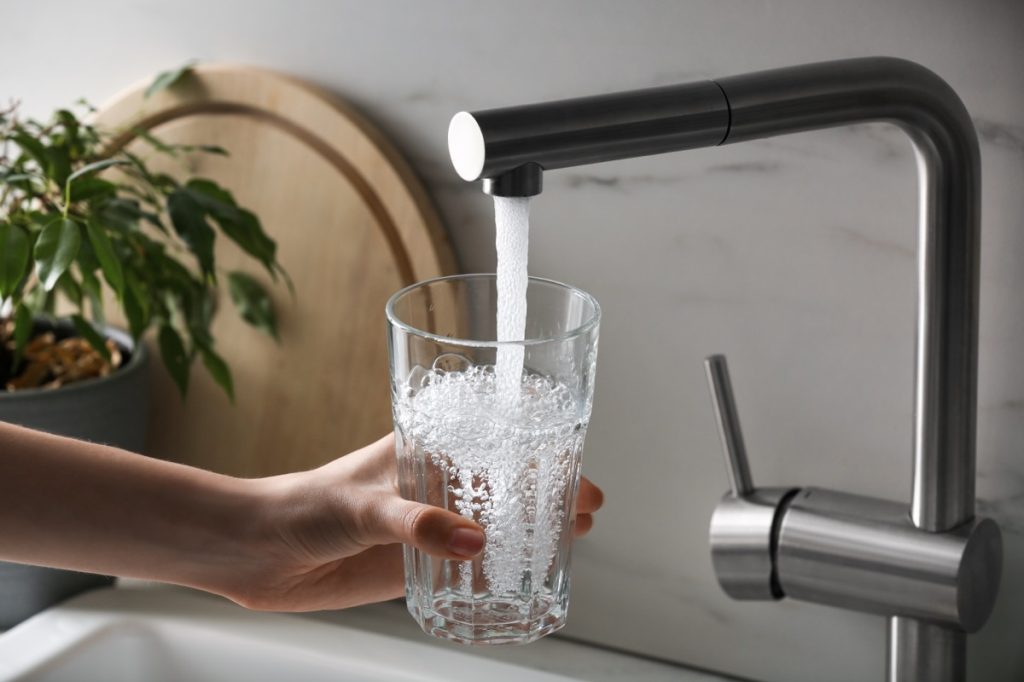
“Drink sole water earlier in the day,” Janine Bowring, ND a naturopathic medicine expert and best-selling author of The Healthy Millionaire, said in a now-viral TikTok video. “About two hours before bedtime, you really want to decrease your hydration. Front-load your day with the proper hydration and add some salt into the water.”
Holding off drinking before bed makes sense. But what’s sole water? Though there are some divergences in brands, sole water (pronounced so-lay) is essentially regular spring water with some Himalayan salt mixed in.
Think of it like super water: As noted by the Park View Health and Wellness Center, sole water contains a series of electrolytes and minerals that keep you hydrated for longer, promote healthier digestion, and, bonus, help you get better sleep.
2
Pee twice before going to bed.
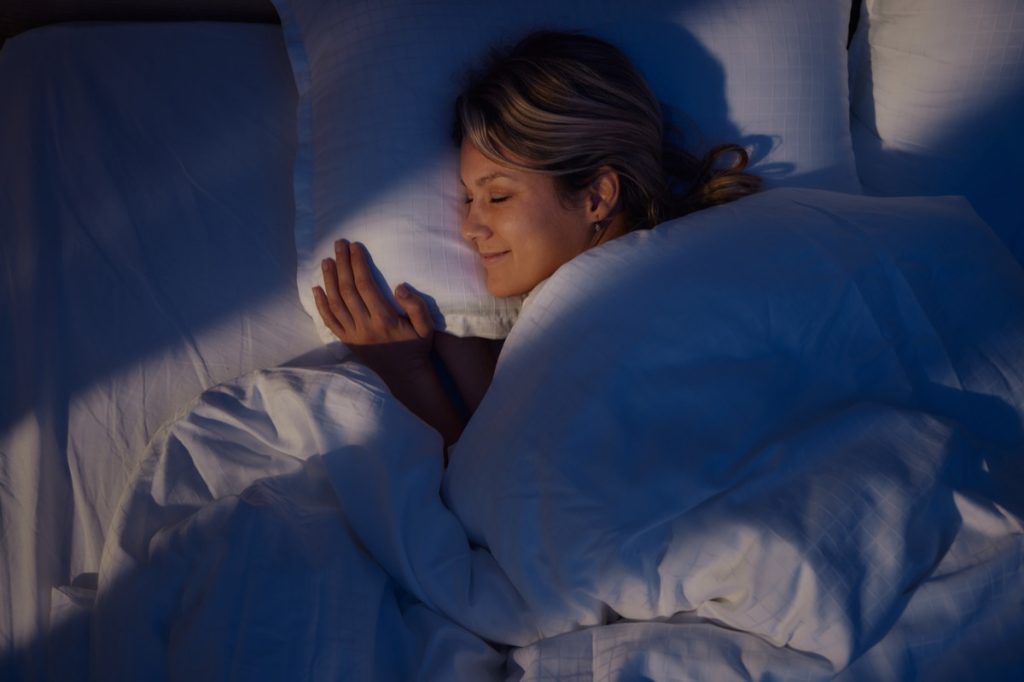
You probably already pee before going to bed every night. But according to Bowring, you should always make sure to do it a second time—if you want to minimize how often you pee in the middle of the night.
“Empty your bladder twice before bed,” Bowring said. “Ideally, you’re going to pee for your last pee of the night. And then you’re going to wait a few moments and then pee a little bit more. You’ll be surprised at how much pee might still be sitting in your bladder right before bed.”
RELATED: 9 Things Your Bladder Will Thank You for Doing, Doctors Say.
3
Wake up with the sunrise.
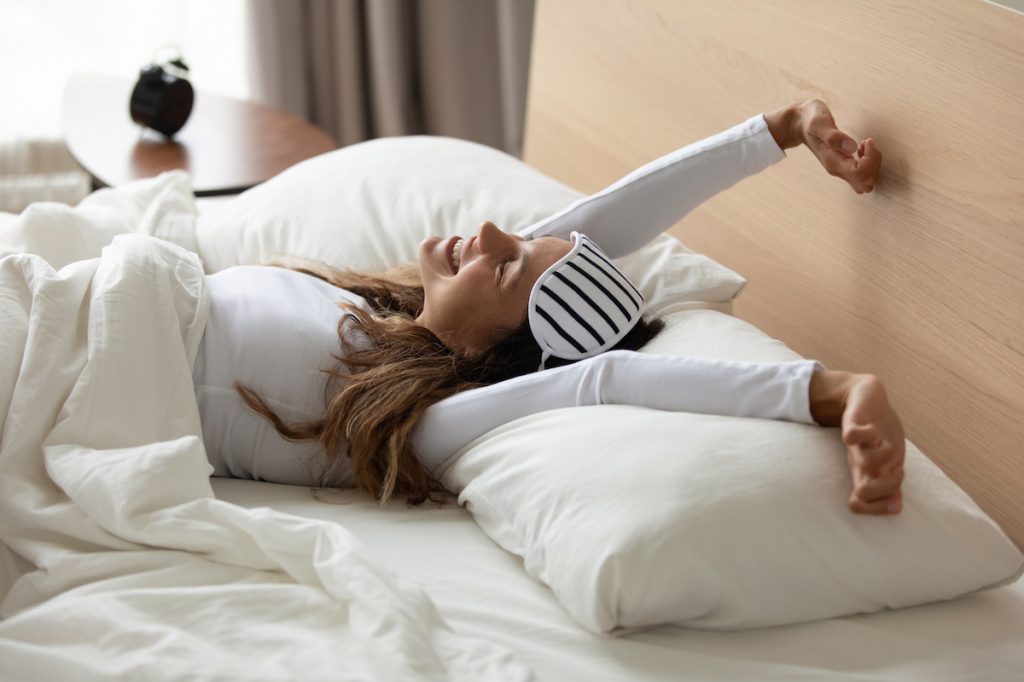
Bowring’s last tip is straight out of Ben Franklin’s notebook, and she described it as the “most important” one: Train yourself to wake up with the sunrise, and to maximize your waking hours spent during daylight.
You probably already know that getting a good sleep comes with a slew of health benefits; sticking to a solid sleep cycle helps maintain your metabolism, immune system, core body temperature, and cognitive function, according to the Sleep Foundation. But training your circadian rhythm can also help defeat a stubborn case of nocturia.
“See that early morning sunlight,” Bowring said. “Now this is going to train your circadian rhythms for your peeing throughout the day, and less light at night, because the darkness simulates that slowing down of your urination during the nighttime.”
Best Life offers the most up-to-date information from top experts, new research, and health agencies, but our content is not meant to be a substitute for professional guidance. When it comes to the medication you’re taking or any other health questions you have, always consult your healthcare provider directly.
- Source: Mayo Clinic: Frequent urination